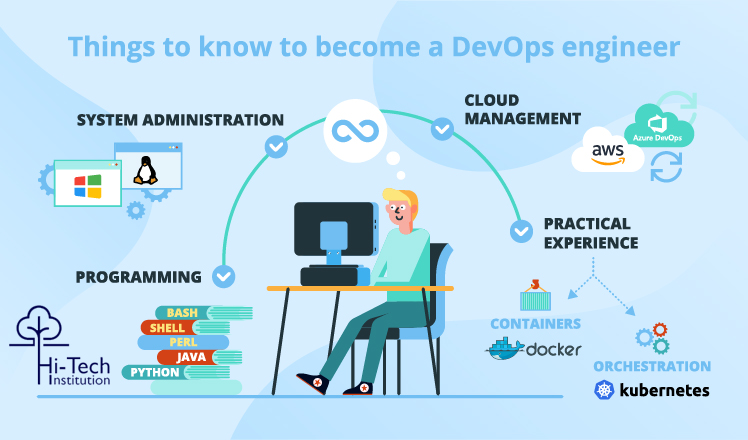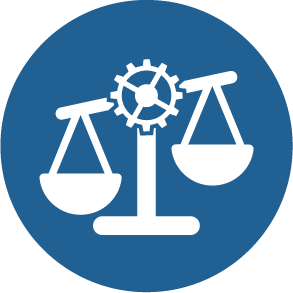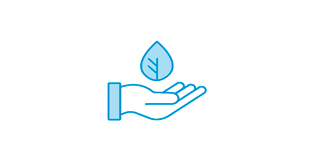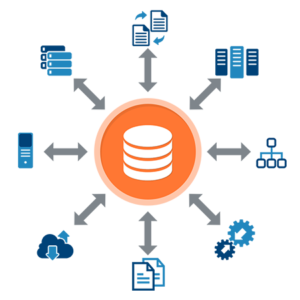
Kubernetes and docker TRAINING IN CHENNAI
KUBERNETES AND DOCKER TRAINING IN CHENNAI
INTRO TO KUBERNETES AND DOCKER
Kubernetes is an open-source container orchestration system for managing, scaling, and deploying software. Kubernetes was created by Google, but it is now maintained by the Cloud Native Computing Foundation. It has a huge and fast-expanding ecosystem. Services, support, and tools for Kubernetes are widely available. It is a framework for managing containerized workloads and services that allows declarative configuration as well as automation. Kubernetes can scale applications and supporting infrastructure resources up or down based on the organization’s changing needs, making dynamic peak management easier. It is based on Google’s 15-year experience operating containerized workloads and the open-source community’s contributions. Kubernetes, which was inspired by Google’s internal cluster management solution, Borg, simplifies the process of deploying and administering your application. It increases your reliability by automating container orchestration and reducing the time and resources spent on everyday operations. Learn Kubernetes from the best Kubernetes Training Institute in Chennai with real time project based training.

Kubernetes is an open-source container orchestration platform with an API for controlling how and where those containers execute.
Kubernetes And Docker Training-Course Content
Session-1: Kubernetes Introduction
- What is Kubernetes
- What problems does Kubernetes solve?
- What features do container orchestration tools offer?
- Main K8s Components
- K8s Architecture
- Worker Nodes
- Master Nodes
- API Server
- Scheduler
- Controller Manager
- etcd – the cluster brain
- Minikube and kubectl – Local Setup
- Node & Pod
- Service & Ingress
- ConfigMap & Secret
- Volumes
- Deployment & StatefulSet
- Scaling
- Namespaces
- YAML Configuration
- Dashboard
- Services
- Ingress
- Persisting Volumes
- Helm – Package Manager
Session-2: Minikube Vs Kubectl
- What is minikube?
- What is kubectl?
- Install minikube and kubectl
- Create and start a minikube cluster
- Main Kubectl Commands – K8s CLI
- Get the status of different components
- Create a pod/deployment
- Layers of abstraction
- change the pod/deployment
- debugging pods
- delete pod/deployment
- CRUD by applying configuration file
Session-3: K8S YAML Configuration File
- 3 parts of a Kubernetes config file (metadata, specification, status)
- format of the configuration file
- blueprint for pods (template)
- connecting services to deployments and pods (label & selector & port)
Session-4: K8s Scaling
- Working with a replica set
- Scale in and Scale down the replica set
Session-5: Organizing your components with K8S Namespace
- What is a Namespace?
- 4 Default Namespaces
- Create a Namespace
- Why use Namespaces? 4 Use Cases
- Characteristics of Namespaces
- Create Components in Namespaces
- Change Active Namespace
Session-6: K8S Dashboard
- How to Install, Access
- Dashboard Authenticate
- Checking applications running
- Add Heapster Metric
- Create, modify, update and delete Kubernetes resources
Session-7: K8S Services
What is a Service in K8s and when do we need it?
ClusterIP Services
Service Communication
Multi-Port Services
Headless Services
NodePort Services
LoadBalancer Services
Session-8: K8S Ingress
- What is Ingress? External Service vs. Ingress
- Example YAML Config Files for External Service and Ingress
- Internal Service Configuration for Ingress
- How to configure Ingress in your cluster?
- What is Ingress Controller?
- The environment on which your cluster is running (Cloud provider or bare metal)
- Demo: Configure Ingress in Minikube
- Ingress Default Backend
- Routing Use Cases
- Configuring TLS Certificate
- Release Management / Tiller (Helm Version 2!)
Session-9: Persisting Data in K8S with volume
- The need for persistent storage & storage requirements
- Persistent Volume (PV)
- Local vs Remote Volume Types
- Who creates the PV and when?
- Persistent Volume Claim (PVC)
- Levels of volume abstractions
- ConfigMap and Secret as volume types
- Storage Class (SC)
Session-10: Deploying Stateful Apps with Statefulset
- What is StatefulSet? Difference between stateless and stateful applications
- Deployment of stateful and stateless apps
- Deployment vs StatefulSet
- Pod Identity
- Scaling database applications: Master and Worker Pods
- Pod state, Pod Identifier
- 2 Pod endpoints
Session-11: Helm- Package Manager
- Package Manager and Helm Charts
- Templating Engine
- Use Cases for Helm
- Helm Chart Structure
- Values injection into template files
DEMO VIDEOS
REGISTRATION YOURSELF TO GET A FREE DEMO SESSION
WANT MORE INFORMATION ABOUT Kubernetes?

Kubernetes FQA
What is Kubernetes in simple words?
Kubernetes is an open-source framework for managing containerized workloads and services that allows declarative configuration as well as automation. It has a huge and fast-expanding ecosystem. Services, support, and tools for Kubernetes are widely available.
Is Kubernetes using Docker?
The Kubernetes server is exclusively for local testing and operates in a Docker container on your local system. You can deploy your workloads in parallel, on Kubernetes, Swarm, and as standalone containers after enabling Kubernetes. Your other workloads are unaffected by enabling or disabling the Kubernetes server.
How do Docker and Kubernetes work together?
Docker makes it easier to “build” containers, whereas Kubernetes makes it possible to “manage” them in real-time. To package and ship the software, use Docker. To launch and scale your app, use Kubernetes.
Is Kubernetes better than Docker?
Kubernetes and Docker are more powerful when used together.
While the promise of containers is that you can write code once and execute it anywhere, Kubernetes allows you to coordinate and manage all of your container resources from a single control plane.
Are Kubernetes and Docker the same?
Kubernetes and Docker are two fundamentally different technologies that complement each other when it comes to developing, deploying, and scaling containerized apps.
What Kubernetes is used for?
Kubernetes, often known as “K8s,” orchestrates the execution of containerized applications over a cluster of hosts. Using on-premises infrastructure or public cloud platforms, the K8s solution automates the deployment and administration of cloud-native apps.
Does AWS use it?
AWS makes running Kubernetes simple. According to the Cloud Native Computing Federation, AWS has the most customers running Kubernetes in the cloud, with the bulk of Kubernetes deployments operating on AWS.
Should I learn Kubernetes?
Kubernetes is in high demand, and it’s critical for developers to understand the platform in order to design scalable apps and deploy them quickly.
About us
The Most Effective Methodology Kubernetes is a great way to learn. Students will get unlimited access to the Student Portal, Study Materials, Videos, and Top MNC Interview Questions. Exam preparation, subject materials, and pre-and post-course support are all available. Kubernetes Certified Professionals with over 8 years of experience will teach you. Hands-on concepts can help you prepare for an interview. we are one of the best institute providing Kubernetes training in Chennai and Pondicherry. Low course fees combined with a well-designed program. Join our upcoming Kubernetes batch!
40+ HRS
Hands-On Training
2 LIVE
Projects For Hands-on Learning
40+ HRS
Practical Assignments
24/7
Lifetime Access To Support Team
MODES OF DELIVERY IN TRAINING




ABOUT COURSES





Kubernetes Features






REGISTRATION YOURSELF TO GET A FREE DEMO SESSION
Want more information about Kubernetes Course?
Give us your information Experts will call you

ABOUT OUR EXPERT INSTRUCTORS


Certifications

The Cloud Native Computing Foundation has a certification program that allows users to demonstrate their command-line skills in a practical environment. The Certified Kubernetes Administrator (CKA) program’s goal is to ensure that CKAs have the necessary skills, knowledge, and competency to perform Kubernetes administrator tasks. It’s an online, proctored, performance-based test that needs you to use a command line to solve various problems.

CKS is a performance-based certification exam that assesses candidates’ understanding of Kubernetes and cloud security in a realistic, simulated environment. CKS can be purchased, but it cannot be scheduled until CKA certification is obtained. On the date the CKS exam (including retakes) is planned, the CKA certification must be active (not expired).
